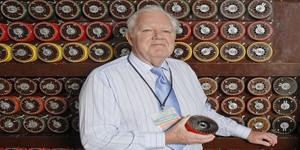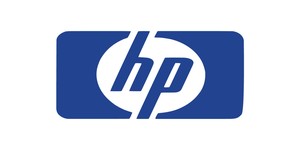The National Museum of Computing (TNMOC) has announced the acquisition of an archive relating to a historic 'hacking' case from the 1980s, from the subject at the heart of the matter: Robert Schifreen.
In the mid 80s, Robert Schifreen made a name for himself cracking into popular telecommunications service Prestel - ending up with access to mailboxes for some major public figures, up to and including Prince Philip. 'Hackers in those days never started until 6pm because it was so expensive to go online with a dial-up connection before that. But 6pm was a significant start-time because the Prestel security staff had gone home and weren’t there to deal with automated messages telling them that there had been three unsuccessful attempts at a log-on to Prestel,' Schifreen told the Museum of his exploits. 'I could read the messages, delete them to cover my tracks before security arrived for work next morning. In effect I was a Prestel System Manager. I even managed to hack Prince Philip’s Prestel Mailbox and was quite open about it.
'[i]I made no secret of what I was doing. It was 1985. The Computer Misuse Act came into existence in 1990. I was doing nothing illegal,' Schifreen explained. 'I phoned Prestel and told them what I could do. I thought they might give me a job. They didn’t. They called Scotland Yard.' The result was a court case which was used to prove the need for legislation covering the abuse of telecommunications services, directly leading to The Computer Misuse Act 1990 - the Act of Parliament under which all computer crimes are tried.
'We are extremely grateful to Robert Schifreen for donating his fascinating archive to TNMOC and giving us an insight into what now seems a very strange world in which computer security was not treated very seriously,' said Museum Trustee Margaret Sale of the donation. 'All this happened just 30 years ago. It demonstrates vividly how computers have become a centrepiece of our lives, a transformation that our Museum aims to bring to life, especially to today’s digital natives.'
The Museum has not announced plans to put the archive, which includes Schifreen's password book, police interview transcripts, legal correspondence, press cuttings, and the Jury Bundle from the case, on public display, but has stated it will make the documents available to 'bona fine researchers' upon request.
In the mid 80s, Robert Schifreen made a name for himself cracking into popular telecommunications service Prestel - ending up with access to mailboxes for some major public figures, up to and including Prince Philip. 'Hackers in those days never started until 6pm because it was so expensive to go online with a dial-up connection before that. But 6pm was a significant start-time because the Prestel security staff had gone home and weren’t there to deal with automated messages telling them that there had been three unsuccessful attempts at a log-on to Prestel,' Schifreen told the Museum of his exploits. 'I could read the messages, delete them to cover my tracks before security arrived for work next morning. In effect I was a Prestel System Manager. I even managed to hack Prince Philip’s Prestel Mailbox and was quite open about it.
'[i]I made no secret of what I was doing. It was 1985. The Computer Misuse Act came into existence in 1990. I was doing nothing illegal,' Schifreen explained. 'I phoned Prestel and told them what I could do. I thought they might give me a job. They didn’t. They called Scotland Yard.' The result was a court case which was used to prove the need for legislation covering the abuse of telecommunications services, directly leading to The Computer Misuse Act 1990 - the Act of Parliament under which all computer crimes are tried.
'We are extremely grateful to Robert Schifreen for donating his fascinating archive to TNMOC and giving us an insight into what now seems a very strange world in which computer security was not treated very seriously,' said Museum Trustee Margaret Sale of the donation. 'All this happened just 30 years ago. It demonstrates vividly how computers have become a centrepiece of our lives, a transformation that our Museum aims to bring to life, especially to today’s digital natives.'
The Museum has not announced plans to put the archive, which includes Schifreen's password book, police interview transcripts, legal correspondence, press cuttings, and the Jury Bundle from the case, on public display, but has stated it will make the documents available to 'bona fine researchers' upon request.

MSI MPG Velox 100R Chassis Review
October 14 2021 | 15:04









Want to comment? Please log in.